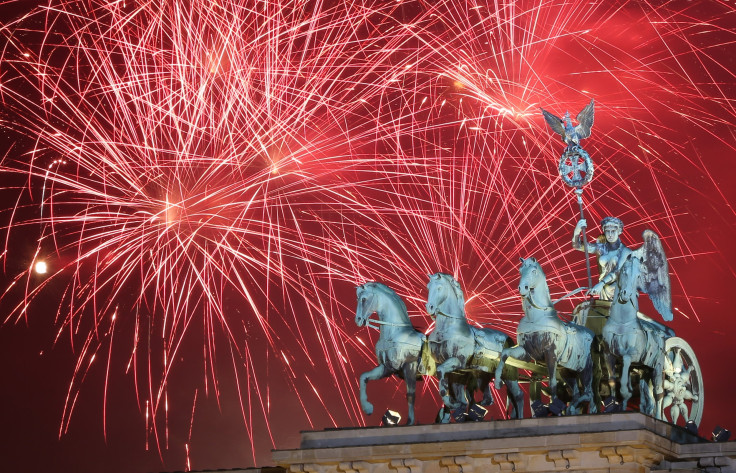New Year's Eve Fireworks Cache Of Over 1,800 Pounds Confiscated Citing Safety

German officials confiscated 1,873 pounds of fireworks from a man’s home in Hamburg, ahead of New Year’s Eve celebrations.
A Hamburg Police spokeswoman told German news agency Deutsche Presse-Agentur that they arrived at the 23-year-old unnamed man’s residence after getting tipped off by his neighbor about the huge stockpile of pyrotechnics at the man’s house. On raiding the location, the police discovered 80 kilograms (176 pounds) of explosive substances, which was 80 times the legal limit that could be stored in a civilian’s home, the Guardian reported.
The firecrackers were packed inside a cellar of his apartment and two vans. It is unclear if criminal charges were filed against the man.
On Sunday, revelers were urged by German officials to rein in their desire to set off massive amounts of private fireworks on New Year’s Eve as their activities ultimately led to a spike in pollution levels around the country and caused safety hazards.
“When I look at the New Year’s scenes in some of the streets in our biggest cities, it seems that many people don’t really understand the dangers,” Guenter Krings, parliamentary state secretary for the German interior ministry, told a local newspaper, the Guardian reported.
There have been over 800 firecracker-related eye-injuries in the past couple of years in Germany due to revelers launching rockets or igniting firecrackers in street corners, balconies and rooftops. The Federal Environment Agency estimated that pollution caused by firecrackers on New Year’s Eve festivities is equivalent of 15.5 percent of the soot emissions from road traffic for an entire year.
Germany has the laxest laws when it comes to fireworks in Europe, with the only limitations extending to igniting pyrotechnics in large crowds and near churches, hospitals, and thatched-roof buildings, Fortune reported.
In fact, according to a Forsa survey conducted for the Berliner Zeitung daily, two-thirds of people living in Berlin said they thought the annual event had gotten out of hand. Despite popular belief, the government failed to pass a law banning parts of the capital from private fireworks earlier this year.
In 2017, Germans spent around 137 million euros ($157 million) on New Year’s Eve fireworks. The firecrackers led to the deaths of two people, a child getting injured and five others requiring amputations. Revelers, most of whom started stocking up on firecrackers from Friday, are expected to match that number, if not exceed it, this year.
U.S.-based environmental experts have also warned of the health hazards that are linked to fireworks lit during New Year’s Eve.
“I think the bigger impact comes from all the folks setting off fireworks in their backyard,” George Allen, chief scientist at the Northeast States for Coordinated Air Use Management, said, Bangor Daily News reported. “There’s more of an impact of what people are exposed to in terms of the smoke.”
According to Robert Lilienfeld, sustainability consultant and former editor of Use Less Stuff, firecrackers can often lead to wildfires.
“The key issues from an environmental standpoint is the potential for destruction if you are not using them safely,” he said. “In dry areas, it lights up scrub. It’s a serious issue.”
© Copyright IBTimes 2025. All rights reserved.





















